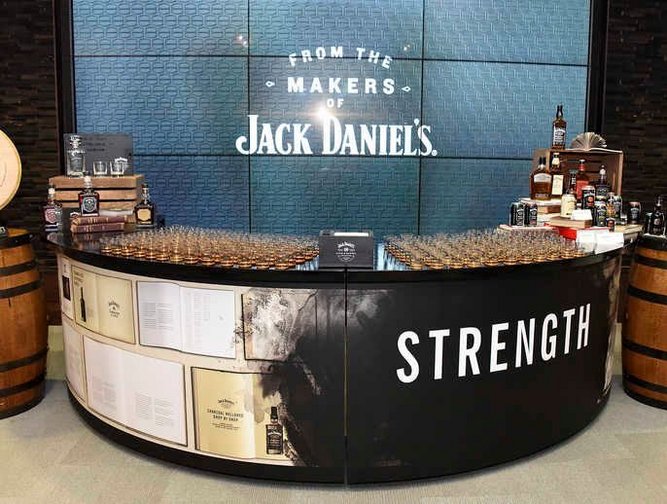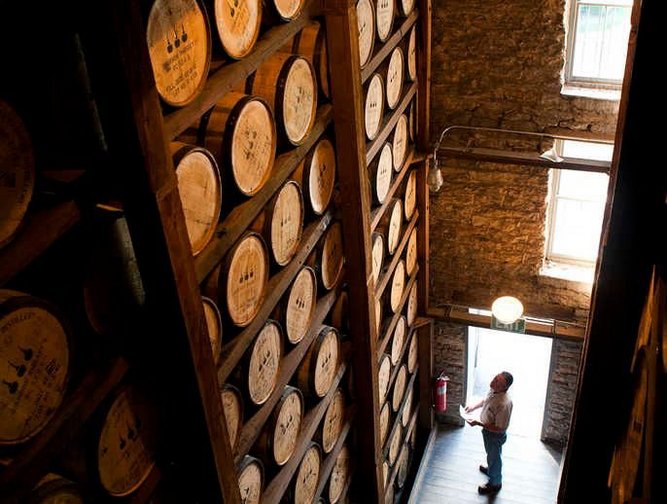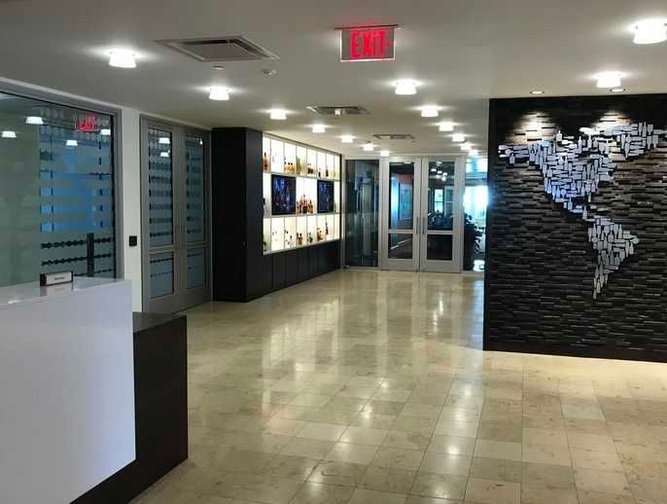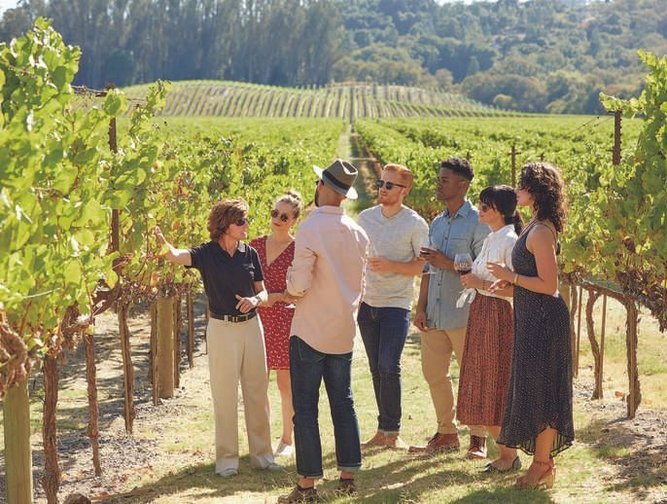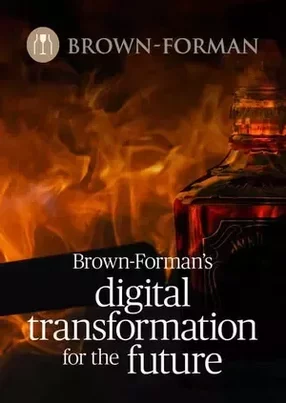Brown-Forman leverages data analytics to spark digital transformation
From Jack Daniels to Woodford Reserve, Old Forester to Canadian Mist, today Brown-Forman’s brands are a mainstay of any bar or cocktail cabinet. The American wine and spirits company was founded almost 150 years ago when the founder, George Garvin Brown, created Old Forester, a brand that is often cited as America’s first bottled bourbon – and it seems that this pioneering approach is still present today. The century-old company is keen to preserve its long-lasting legacy but it isn’t naïve enough to think that the alcohol market will be untouched by the latest wave of digitization. In fact, Brown-Forman has put its weight behind a root-and-branch digital transformation that hopes to cement its brands as household favourites for years to come.
With over 18 years of experience at Brown-Forman under his belt, this job has fallen partly into the capable hands of Tim Nall, Senior Vice President and Chief Information and Data Officer(CIO/CDO). With an acute understanding of the inner workings of the American company, married with a continuous improvement mindset, Nall and his team have ensured that IT no longer plays a back-end function but rather is a key strategic driver of Brown-Forman’s operations. “Brown-Forman used to be a traditional place where IT was viewed as a back-office function,” observes Nall. “But a few years ago, we began to look at what tools Brown-Forman needed to really advance in this data economy. We began to view IT as an enabler and business partner, a function that could provide true solutions not just for the back office but for production teams, sales teams and marketing teams.” This has been a seismic shift in mindset for Brown-Forman, but it is undoubtedly an essential step for any company wanting to remain at the top of its game in today’s digital economy.
Storytelling and brand building are the backbone of a successful food or beverage brand, and it is a skill which Brown-Forman has honed for decades. “We absolutely believe the consumer is king,” observes Nall. “Our ultimate goal is for our consumers to understand our product – we want them to make educated choices, we want them to be fans of our brands.” How best to connect with these consumers is a pressing question for any food and beverage business, and Nall believes that technology could be a key part of the solution. “Whether you're communicating on social media with that consumer, whether you're creating interactive tools for that consumer, how you're targeting that consumer – it all requires technology,” he explains.
Over the past few years, the Jack Daniels maker has implemented a slew of technologies to become a more digitally savvy firm. These include everything from cloud-based productivity and collaboration tools to a modern data stack. “First, we realized our existing data stack was not adequate enough for us to really gather, harmonize and interrogate our information. We knew we had to modernize, so we started looking for a modern data ingestion platform that our employees could leverage and we settled on Talend as our partner working with the Talend Data Fabric,” explains Nall.
“We knew we also wanted a modern, robust warehouse for all this information to go into so we chose to work with Cloudera. Then we asked ourselves how our employees and our partners would really interrogate and examine the information that we give them. We wanted to ensure that we had modern toolsets out there as well, so we looked at different products and settled on Tableau as our visualization platform and RStudio as our analytical, statistical modeling platform.” Through these cutting-edge technologies, Brown-Forman has sought to democratize data and its analytics so that employees from all departments can utilize this for their own ad hoc analyses every day.
Gaining the data is only the beginning. For this tool to really earn its stripes, Nall points out that you need to gain true insight and analysis of the figures. “We're always cautious to say that, in a way, the data isn’t doing anything,” he explains. “It's the insights we're gleaning from the information that are important. Data without analysis is wasted money. We've transformed how we look at the information; it's surfacing new ideas that are really driving positive action within the company.”
At Brown-Forman, data has been the bread and butter of the company’s digital transformation and it’s helping to deliver insights that drive tangible, real-life results, such as more informed pricing decisions. “It’s helped us see how our competitors are moving with regards to their price and how that affects us. Over the past few months, we've been rolling out a revenue management application globally that's been well received,” explains Nall. Data analysis has touched every corner of the American company, including the heart of its operations: its production division. “We worked closely with the production organization and we saw that there were issues that data analytics could help resolve. Using data, we’ve taken a hard look at our barrel yield to see what issues could be affecting it. Leveraging a lot of internal information and even external information like the temperature and other variables, we’ve provided dashboards that are really helping our production partners better manage and forecast barrel yield.”
With its quintessential southern American charm, Brown-Forman is well known for its captivating marketing efforts but the company has taken this one step further with its use of data technology “We’ve engaged with partners like Salesforce to help us provide modern toolsets, and we’ve also looked at exact target marketing and consumer journeys so we can better communicate with our customers and deliver a better experience,” says Nall. The wine and spirits firm has also made its first foray into chatbots and has used SMS text engagement at its distillery tours. Additionally, as a sponsor of the Kentucky Derby, Brown-Forman says it can use a balance of marketing and data analytics to track whether event promotions have been effective and to forecast the success of its future campaigns. This, in turn, helps marketing dollars go further and increases brand awareness.
The biggest tool for marketing, though, is undoubtedly Brown-Forman’s team. With a 4,600-strong workforce worldwide, teams are not only seen as employees but are also viewed as brand ambassadors. “We look at every employee as a tremendous brand builder,” observes Nall. “We want our consumers to know the stories behind Brown-Forman. We want them to engage with us so that we can tell them about Old Forester, the first bottled bourbon. We want them to understand our recipes so that they can create the perfect Manhattan. I think that's the real benefit for the consumer: they get this information and it's digestible. We view data and analytics as playing a significant role in our future successes.”
Over the past decade, technology has undoubtedly revolutionized the customer experience. With a few swipes and taps of our devices, we can get the goods and services we want when we want them. Today’s consumers expect their experience to be seamless and indeed today’s workforces are no different.
See also:
- Rotana Hotels: Expanding with sustainably in mind
- Scandic Hotels Norway: digital transformation for sustainability, health and guest experience
- ARBOREA Hotels und Resorts aims to transform the guest experience
“Just like we want to understand the expectations of our consumers, we also want to understand the expectations our employees,” Nall adds. “Our employees expect a consumer-like experience.” Making working life simpler for staff in over 160 countries is not an easy feat, but by leveraging trailblazing technologies and processes Brown-Forman is hoping to bridge geographical gaps and bring its teams closer together.
“Whether it’s regarding their paycheques, their communications or their training, we want to make sure that it's delivered seamlessly and that our employees have a great experience with it. We want to make sure that all our 160 countries are connected. You could do that by hopping on aeroplanes but that can be very costly and so we are leveraging modern technology to help connect our team.”
Pushing for better communication, Brown-Forman quickly got on board with cloud technology like Google’s G Suite platform and Cisco’s Webex tool. “We believe these tools help eliminate borders and time zones,” says Nall. As a Salesforce customer, Brown-Forman has not only adopted the firm’s customer relationship management (CRM) tool globally, but is also using its Chatter tool that allows employees to keep in touch. “Our employees are used to tweeting and using instant messaging apps in their personal life so Chatter gives that to them professionally,” he adds. “It really allows all of these employees just to stay connected despite the time zones.”
As more and more technologies come to the fore, it seems it’s an exciting time to be in the alcoholic beverage space. However, Nall is keen to point out the saying ‘if you have a hammer, everything looks like a nail’ – that is, if a business relies too heavily on particular tools it may miss out on the perfect solution or idea. Instead, he suggests: “When we think about digital we always think about our stakeholders, our employees and our consumers. We definitely believe that technology isn’t a solution, but it is an enabler for change.”

